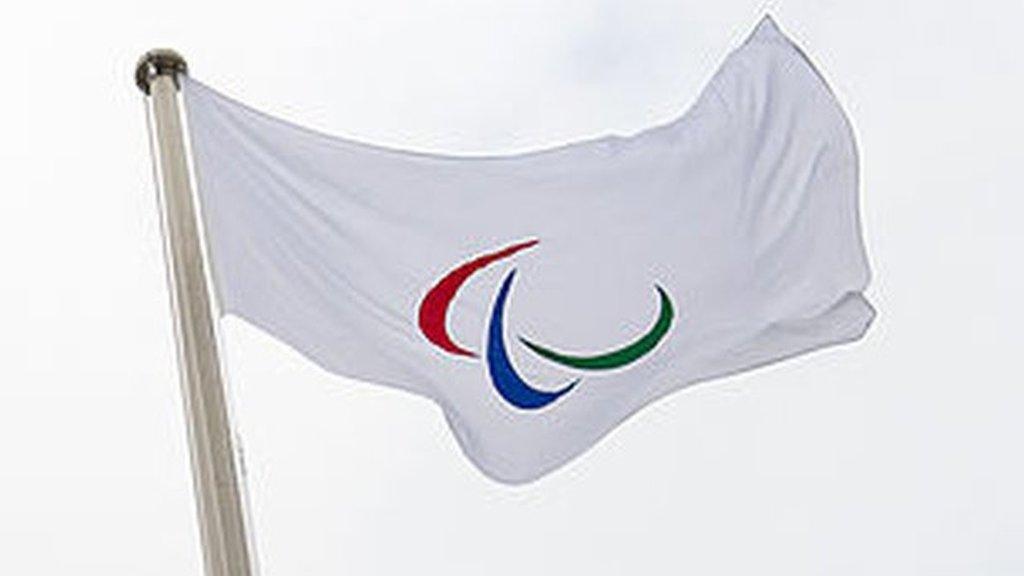Rio Paralympics: How Games could better the Rio Olympics
- Published
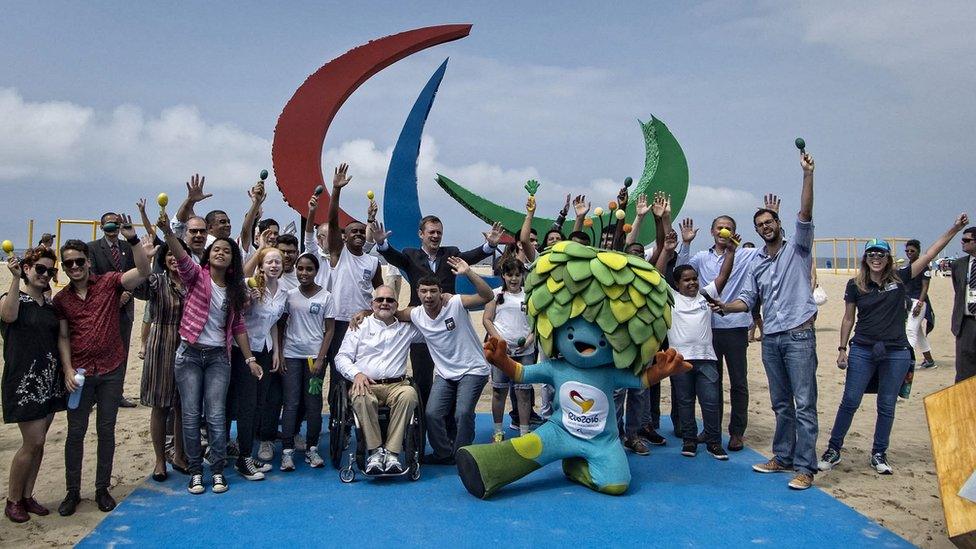
Paralympians have been gathering in Rio for the start of the Games on 7 September
"Who said there wouldn't be a queue to buy tickets for the Paralympic Games?" 22-year-old Brazilian sports fan Vinicius Freitas, external wrote on Twitter a few days after the end of the Olympic Games in Rio.
The photo he tweeted did indeed show a respectable queue for tickets to the Paralympics which start on 7 September.
But Mr Freitas was not complaining.
On the contrary, the queues for Paralympic tickets have been welcomed after the main complaint about the Olympics was that there had been too many empty seats.
Ticket sales break records
As the Olympics came to an end, it seemed the Paralympics would attract even fewer spectators.
There were also fears that major budget cuts and a delay in travel grants being paid to athletes could affect the Games.
Read more: Paralympics to go ahead with major cuts
With only 12% of the tickets sold at the time, athletes and fans wondered if Rio would be able to match the success of the 2012 Paralympics in London.
Following some last minute budget adjustments and a cash injection from the federal government, it looks like it might.
On the day Mr Freitas tweeted the photograph of the queue, the Rio 2016 committee had registered 145,000 tickets sold within 24 hours, a record for the Paralympics.
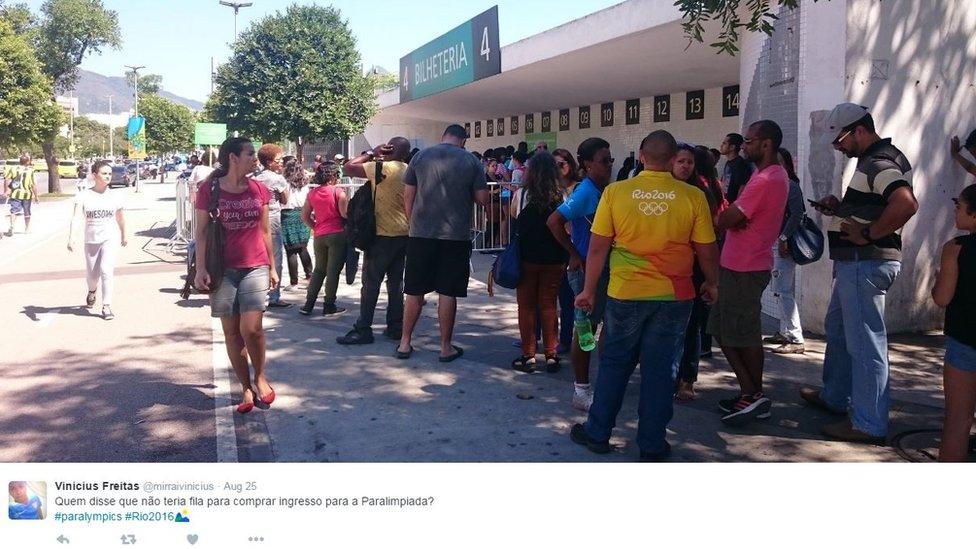
Vinicius Freitas' picture shows people queuing to get tickets for the Paralympics
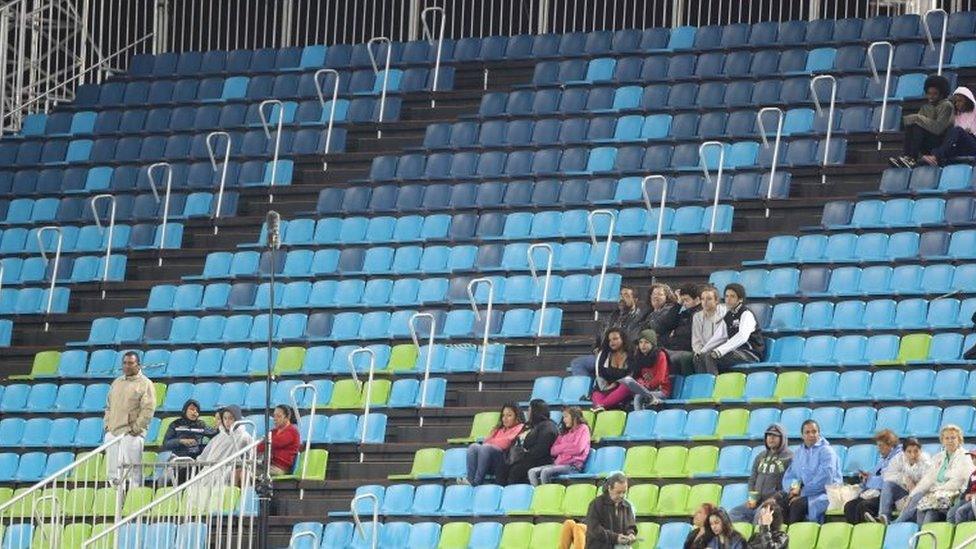
While some events at the Olympics attracted few fans
Three days before the opening ceremony, 1.5 million tickets had been sold, according to official figures.
While that still falls short of the committee's goal of 2 million tickets sold, organisers are hoping the remainder will be sold once the Paralympics start.
'Life-changing event'
Richard Laver, an interpreter from Rio de Janeiro, is one of the people behind the recent surge in ticket sales.
Mr Laver first watched Paralympic sport when he was 18 and his teacher took his entire class to watch a match of five-a-side football.
"Seeing those blind people, whom I used to pity, as athletes changed my life. It made me see people with disabilities in a completely different light," he tells the BBC.
"I bought my tickets for the Olympics well in advance and I knew they would be wonderful," he says.
"But when I saw that the Paralympics weren't selling well, it made me really sad," he adds.
Mr Laver wanted to give disadvantaged children in Rio the chance to watch Paralympic athletes compete, just as he had when he was 18.
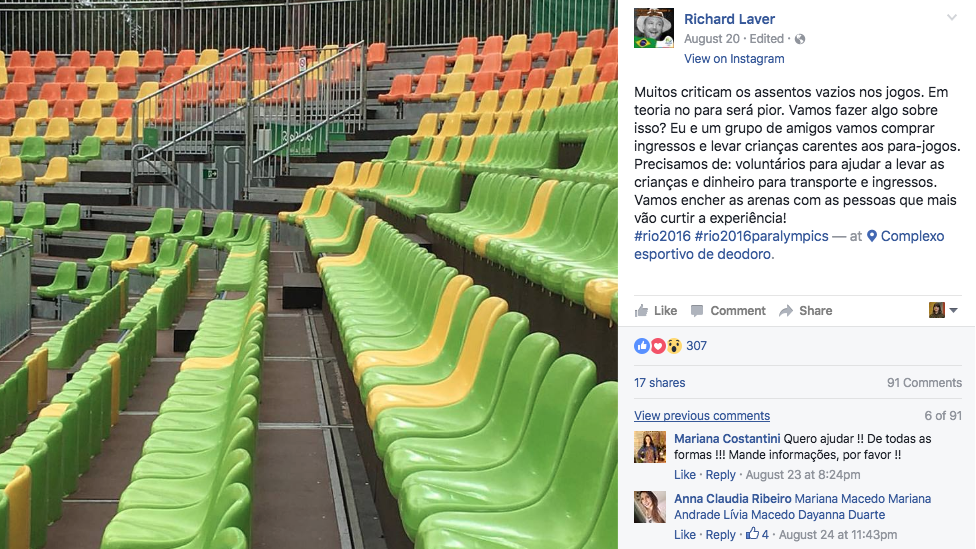
Richard Laver asked if his friends would be willing to donate to take disadvantaged children to the Paralympics
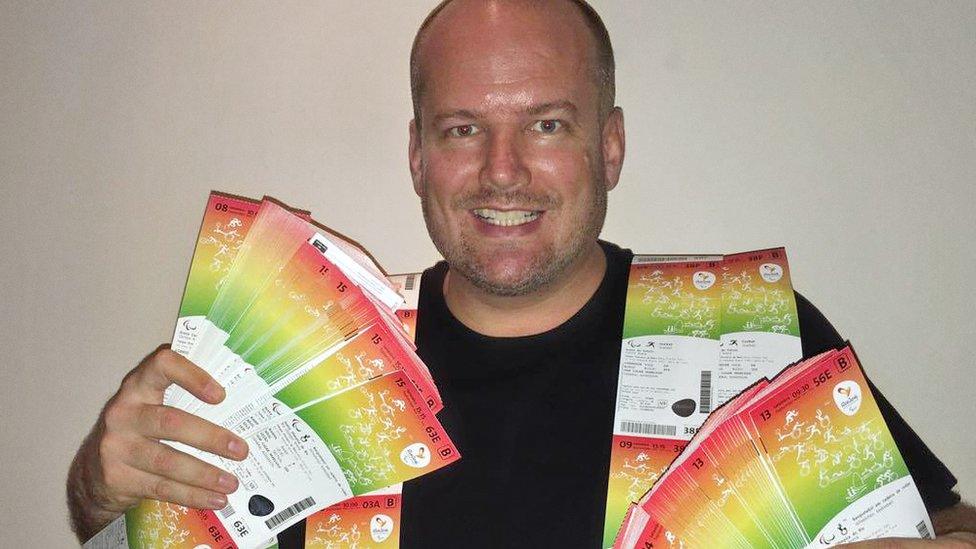
Thanks to donations from dozens of people he has managed to buy 500 tickets
So he decided to ask his friends for donations on Facebook in order to buy tickets to give away for free.
He says the response was overwhelming.
"I thought only a small group of friends would help me get a few tickets, but dozens of people I didn't even know started approaching me," he recalls.
Mr Laver will now be able to take 450 children and 50 teachers from two public schools in Rio to watch goal ball, sitting volleyball and wheelchair basketball.
"I want them to know that they, too, can overcome obstacles in life," he says.
'Efficient, not disabled'
Inspiring tales of how people overcame conditions ranging from blindness to cerebral palsy to become top athletes are among the main reasons Brazilians say they will be watching the Paralympics.
"I'm getting ready to cry everyday during the Paralympic Games. Imagine the life stories!" is just one of the typical posts one can read on social media, where the words "cry" and "Paralympics" can often be seen together.
Brazil's Paralympians, however, would rather be seen for the sporting superpower they are.
In the London 2012 Paralympics, Brazil came seventh in the medal table, just behind the United States.
In comparison, their Olympic compatriots only came 13th in the Rio Olympics.
"Brazilians are still under the impression that we are 'miserable'," says Paralympic swimmer Susana Schnarndorf.
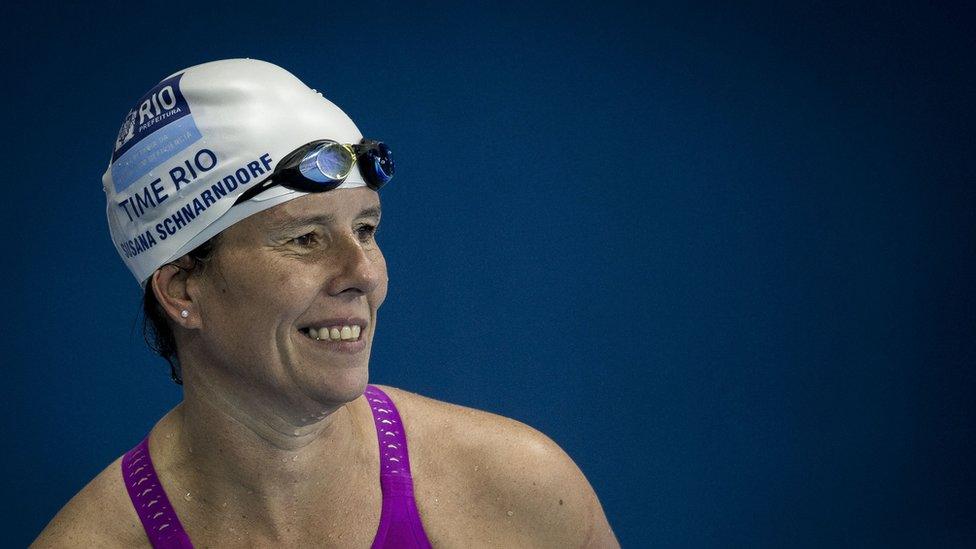
Susana Schnarndorf does not want to be seen as disabled...
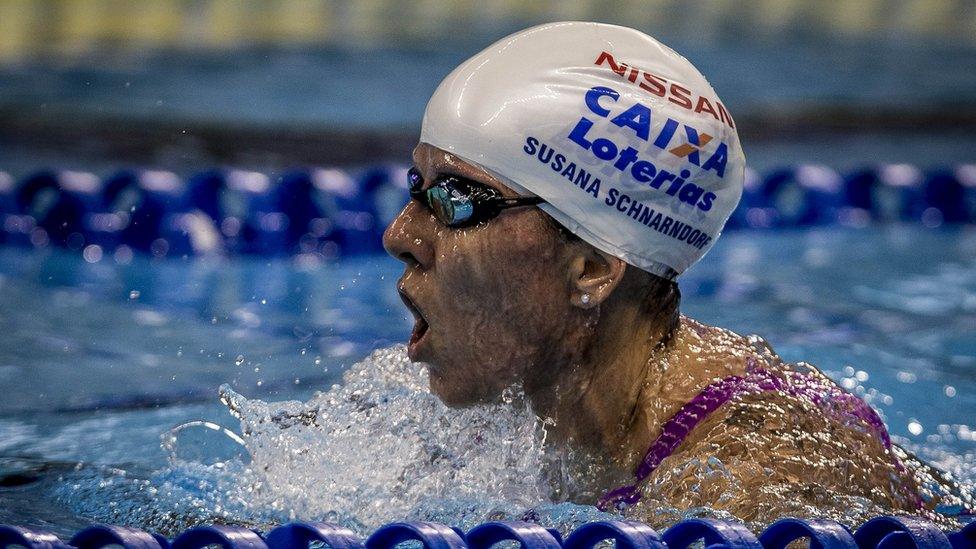
...but as a top athlete
She says the best part about these Games is that Brazil's Paralympians will get to show the public that they are athletes who are aiming high.
"We want them to see that we're efficient, not disabled."
Watershed moment
Paralympians are hoping the Games will not just be an introduction to a new world of sport for spectators but a watershed moment.
"We need to decide where Paralympic sport should go from here. It needs to be more organised, more professional," says four-time canoeing world champion Fernando Fernandes.
"We have to move away from the personal stories and start explaining to people how the sport works," he says.
"It's not just that Brazilians don't recognise their athletes, they don't even know the sports."
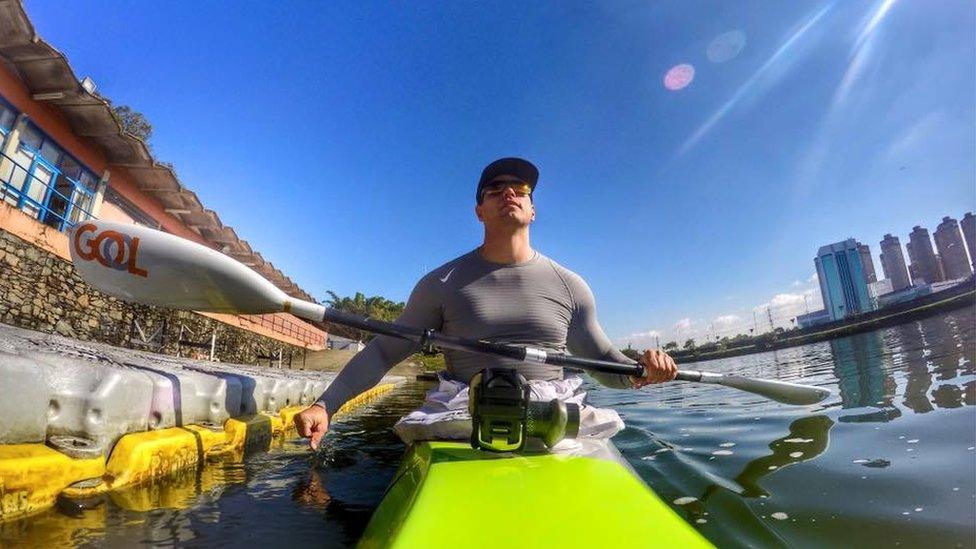
Fernando Fernandes says he hopes people will watch the Paralympics because they are "amazing"
Fernandes will not be competing in Rio after failing to qualify, but he says he will be doing his part to educate viewers as a commentator on TV.
"This is not about the inclusion of people with disabilities," he insists.
"We are the sporting elite. People should be watching because it's amazing, not because we overcame obstacles. The athletes can't stand that anymore."
With Brazilians continuing to queue for tickets, he seems confident change is coming.
"We are at a key moment. I'm sure Brazilians will watch the Games and we will show them [what it's all about]."
- Attribution
- Published20 August 2016
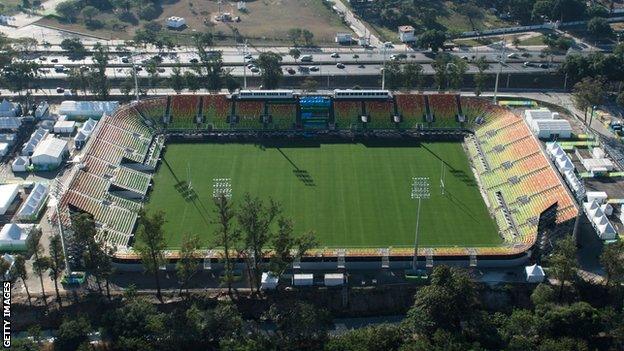
- Attribution
- Published21 August 2016
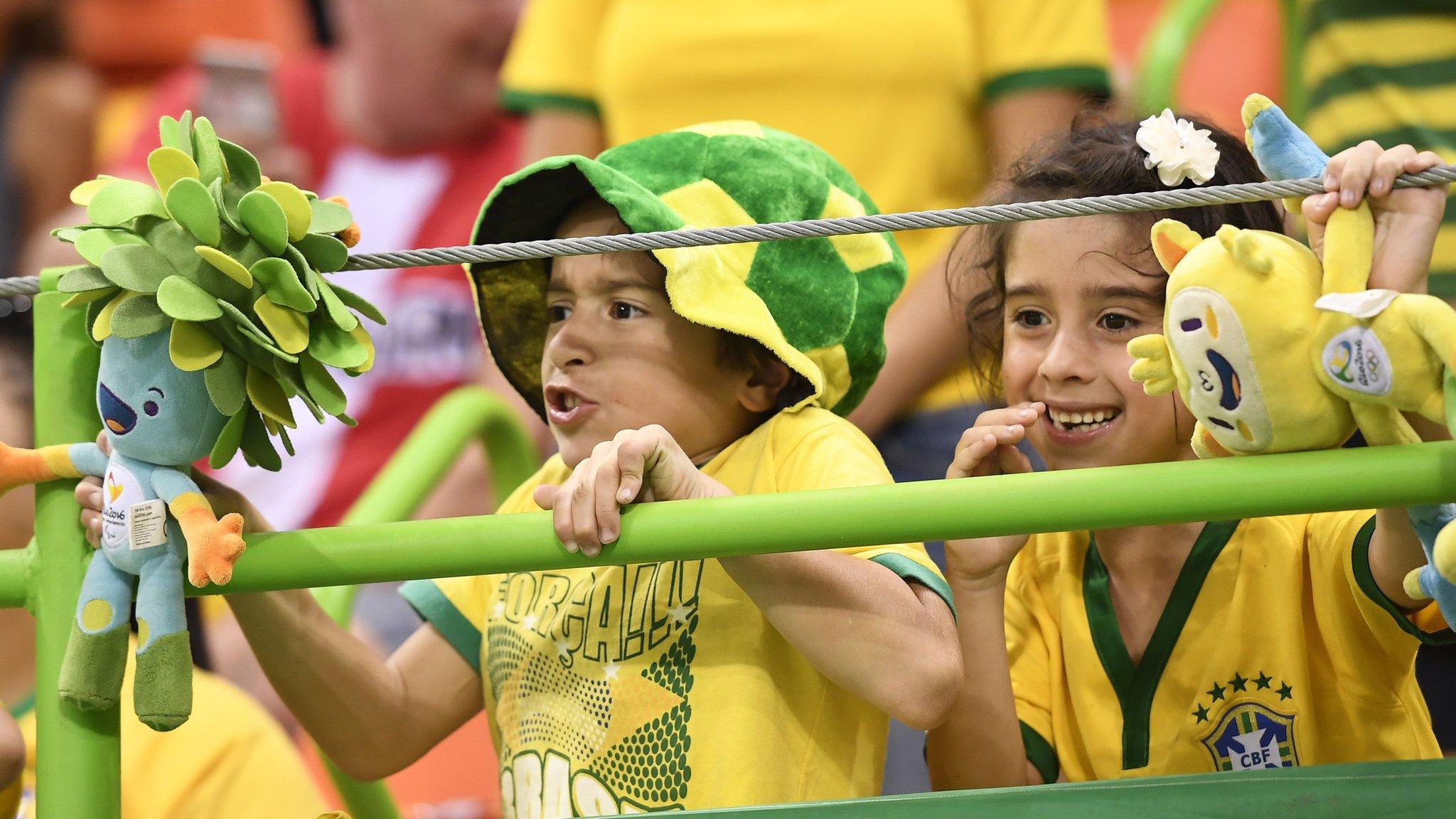
- Attribution
- Published15 August 2016
